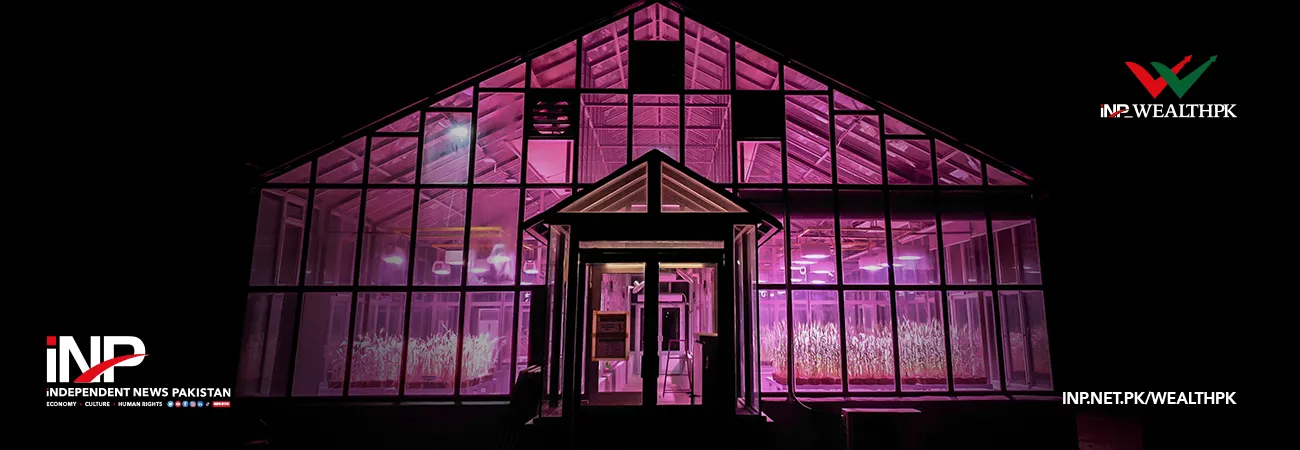INP-WealthPk
By Arooj Zulfiqar
ISLAMABAD, June 08 (INP-WealthPK): Agriculture is an essential component of the economy and a strong engine of growth in a majority of developing countries. Being an agricultural economy, Pakistan relies heavily on agriculture for national income and job creation. The biggest portion of the population is actively engaged, either directly or indirectly, in the agriculture sector.
 In a discussion with WealthPK about women’s role in the agriculture sector, Dr Muhammad Ali Talpur, Economic Consultant at the Ministry of National Food Security and Research, said, “The current share of agriculture accounts for 22% of GDP as against 19% last year. Women play an important role in the agriculture sector, as they make 51% of our population. 83 million people are engaged in agriculture out of which 40 million are women. Women play their part in various fields of agriculture.”
“Women participate in the decision-making committees where they state their points of view. The government has formed a central cotton committee, of which I am the CEO, where women are working in different fields along with men. Women are also taking part in sowing and the growth is quite progressive,” Talpur said.
He said, “Women, whether they are educated or not, know a lot about agriculture. Many educated women have adopted agriculture as their profession and are working as scientists and field assistants. There is another class of working women in the agriculture sector who work as labourers and contribute a lot to it. For example, cotton picking is done by women and they get paid in return.’’
Talpur said the annual revenue from cotton picking was Rs64 billion. Cotton itself is a huge industry that provides livelihood to women.
In addition to cotton picking, women also play a role in wheat harvesting. In rural areas, some families harvest wheat and take it for wages which are consumed all the year round. In addition, every major and minor crop operation involves women e.g., sowing of rice, he added.
“While women are playing a significant role in the agriculture sector, they are facing a lot of difficulties. They contract many diseases because of the use of pesticides, especially those used in cotton. After working the whole day, they get very less time for themselves. They also compromise on their children and families. Despite the fact that they play a vital role in agricultural growth, their efforts go unnoticed,” said Talpur.
Women are mainly illiterate due to a lack of educational facilities, traditional culture, and early marriages, all of which prevent them from receiving a basic education. As a result, he said, they rely primarily on informal learning, traditional knowledge (much of which is outdated), and their own agricultural experience.
‘’Lack of land ownership is another challenge our women face. Land ownership is restricted to male members, depriving women of their right [to own land]. They work on the farms owned by their fathers, husbands, or sons. As a result, acquiring credit is difficult for them.
In order to boost farmer entrepreneurship, the government has set up a farmer market where farmers are given free of cost stalls to sell their products. Women have participated in it in large numbers, he added.
In a discussion with WealthPK about women’s role in the agriculture sector, Dr Muhammad Ali Talpur, Economic Consultant at the Ministry of National Food Security and Research, said, “The current share of agriculture accounts for 22% of GDP as against 19% last year. Women play an important role in the agriculture sector, as they make 51% of our population. 83 million people are engaged in agriculture out of which 40 million are women. Women play their part in various fields of agriculture.”
“Women participate in the decision-making committees where they state their points of view. The government has formed a central cotton committee, of which I am the CEO, where women are working in different fields along with men. Women are also taking part in sowing and the growth is quite progressive,” Talpur said.
He said, “Women, whether they are educated or not, know a lot about agriculture. Many educated women have adopted agriculture as their profession and are working as scientists and field assistants. There is another class of working women in the agriculture sector who work as labourers and contribute a lot to it. For example, cotton picking is done by women and they get paid in return.’’
Talpur said the annual revenue from cotton picking was Rs64 billion. Cotton itself is a huge industry that provides livelihood to women.
In addition to cotton picking, women also play a role in wheat harvesting. In rural areas, some families harvest wheat and take it for wages which are consumed all the year round. In addition, every major and minor crop operation involves women e.g., sowing of rice, he added.
“While women are playing a significant role in the agriculture sector, they are facing a lot of difficulties. They contract many diseases because of the use of pesticides, especially those used in cotton. After working the whole day, they get very less time for themselves. They also compromise on their children and families. Despite the fact that they play a vital role in agricultural growth, their efforts go unnoticed,” said Talpur.
Women are mainly illiterate due to a lack of educational facilities, traditional culture, and early marriages, all of which prevent them from receiving a basic education. As a result, he said, they rely primarily on informal learning, traditional knowledge (much of which is outdated), and their own agricultural experience.
‘’Lack of land ownership is another challenge our women face. Land ownership is restricted to male members, depriving women of their right [to own land]. They work on the farms owned by their fathers, husbands, or sons. As a result, acquiring credit is difficult for them.
In order to boost farmer entrepreneurship, the government has set up a farmer market where farmers are given free of cost stalls to sell their products. Women have participated in it in large numbers, he added.













